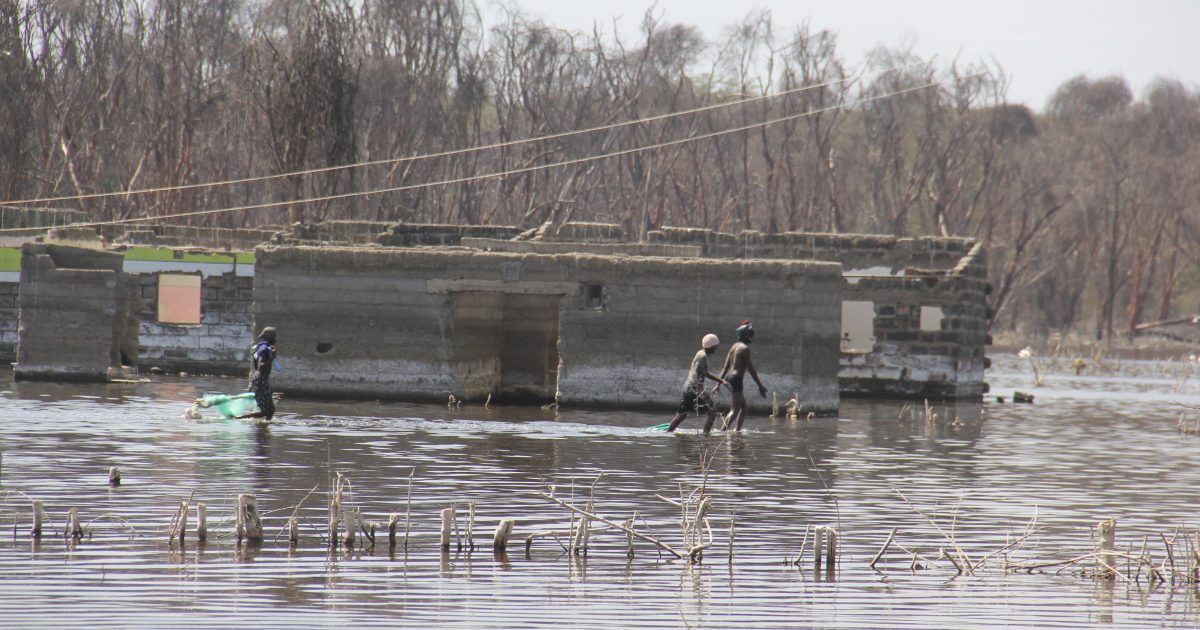Fishermen at the shores of Lake Nakuru have ignored findings by experts that fish in the water body are laden with toxic elements that pose a health hazard and have continued to either consume them or sell to other members of the public.
The booming tilapia and mud fish business continues to thrive even after research by the Kenya Marine and Fisheries Research Institute (KEMFRI) showed that fish tissue samples from the lake had high levels of nitrates and traces of other hazardous chemicals.
Though officials from Nakuru County Health Department and the Kenya Wildlife Service (KWS) have been manning the fishing points to keep away both commercial and subsistence fishermen, much of the illegal fishing activity continues unabated outside the game reserve and private farms where the lake waters have spilled over.
Lake Nakuru, according to a recent study, currently has three newly introduced tilapia fish species that previously never existed.
Until the recent rise in water levels in the lake, researchers say only one species Tilapia Grahami which was introduced in 1953 existed within the soda lake. The new fish species has attracted locals and has seen makeshift eateries spring up on the boundaries of lake shores.
It was also for many years inhabited by cichlid, a small type of fish that is able to tolerate harsh conditions. The fish was introduced in the early 1960s and has flourished in the lake.
Fishing within the farms where water from Lake Nakuru has spilled into, according to the locals, is a rare chance that has given them opportunities to fish and supply the commodity to eateries in towns.
At the famous Ponda-mali market traders are up by 5am waiting anxiously for the precious product from various fishing points which is ferried on motor bikes and pick-ups.
A spot check by Kenya News Agency showed the ban seems not to be in effect as traders carrying the fish packed in boxes and sacks arrived at Soko Mjinga, Ponda-Mali, Free Area and Ronda markets as women armed with basins scrambled for the commodity.
Ms. Phanice Ayuma who sells tilapia from the lake popularly known as ‘blackie’ at Soko Mjinga market in the sprawling Kaptembwa settlements said that she was not unaware of the ban and that her business has not been affected this year.
“Cash availability is a problem at this time of the year and we need to sell ‘ngege’ from Lake Nakuru to provide for our families. We have not been stopped officially from getting this type of fish,” added Ms. Ayuma.
She sells a piece of tilapia at between Sh50 and 200 depending on the size. She said it is normal for the price to hike when the commodity is scarce in many fishing fields.
Along many private homes in Mwariki Village that have been submerged by swelling waters from Lake Nakuru basin, fishermen continue casting their nets wide undeterred by the ban that was imposed to protect unsuspecting consumers from harmful effects linked to consumption of the fish.
Mr. Henry Kamotho is among more than 60 locals whose farms were submerged by the rising waters who are now cashing in on the ‘fishing industry’ that largely remains unregulated.
“The business is booming and the returns are good…we lost our farms to floods but our relief comes from the handsome returns we get from our fishing activities,” he told Kenya News Agency.
Kamotho reveals that most of his former neighbours have taken to fishing in their former farms as the trade was more lucrative due to lack of stringent regulations and membership terms and conditions.
Another fish trader, Mr. Alex Maranga, said he stopped selling fish from Lake Nakuru early last year, because he noticed that it decayed very fast, leading to huge losses.
“My customers started complaining that fish from Lake Nakuru had a foul taste. I cannot trade in that fish. I always ask where the fish I am about to buy is from. Those who are selling the different species from the lake have incurred losses due to its fast rotting,” Mr. Maranga who operates at Free Area market said.
In Nakuru Town West Sub- County’s Ronda-market, fishmongers appealed to the Government to allow fishing at Lake Nakuru since it cushions them from hunger.
Florence Akinyi said the ban is punitive to those who previously relied on businesses around the lake for their livelihood. Akinyi said the Government should heed to their plea and uplift the ban.
“Now that the water has displaced us, we have to fish and sell to survive. We are fishing within our own farms and the fish tastes good,” Jane Njambi, one of the Mwariki residents said.
A number of Fishmongers and hoteliers interviewed at the Nakuru Central Business District maintained that even before the ban they used to get fish from other sources.
“This establishment has never traded in fish from Lake Nakuru. We source our fish from as far as Lake Victoria and Turkwel. There are also a number of private aqua culturists who supply us with fish,” Ms. Janet Kahiko, a proprietor of an eatery at Kenyatta Avenue in Nakuru, said.
The booming business within Mwariki has further attracted fishermen from Lakes Naivasha and Victoria to explore the new ground, which they say, is fertile for fish. “I relocated from Naivasha to come and help assist owners of these farms maximize on their profits. We split profits from the fish I get from their farms,” Kelvin Njoroge, a fisherman said.
For James Otieno, a fisherman who moved from Lake Victoria, he said the size of the fish ‘is not bad’ and farmers are getting good revenue. “It is just the ordinary fish, except that we are not allowed to move deeper past the face separating residential areas and the park,” Otieno said.
A seasoned fishmonger at Ponda-Mali market, Derrick Ouma, defined the fish as foul-tasting compared to that caught in lakes Naivasha, Turkana and Victoria.
“I have never consumed the fish because of my reservations about their safety but those who have tasted it say it is not palatable,” he said.
Mr. Ouma said fish from the lake had also found its way in markets in Nairobi, Kiambu, Kericho and in some other parts of the country, but he noted that his suspicion made him avoid trading in them.
KEMFRI researchers began their investigations after the constant complaints by fishmongers, especially after some fish were found dead in the lake in January 2020. The research found that there is a high level of nitrate in Lake Nakuru, raising concerns that the fish is not safe for human consumption.
The report states that the mysterious deaths were caused by toxicity of the four fish species found in Lake Nakuru. Nile tilapia was the worst affected by the deaths. Most of the dead fish were larger in size than the average catch found in the lake.
Besides Nitrate, the concentration of chlorophyll-a in the fish was found to be 84.49 milligrams/litre (mgl-1) while others had a concentration of 77.35 mgl-1.
“Some of the points within Lake Nakuru were found to have the nitrates at a concentration of 67 milligrams per litre indicative of organic and inorganic discharge into the lake, possibly originating from industrial or municipal waste. The concentration of chlorophyll-a, the report notes, is indicative of the excessive nutrient loads in the water and led to an increase in algae biomass.
The scientists note that nitrates are toxic in amounts greater than 45 milligrams/litre, and that the environmental conditions in Lake Nakuru are not optimal for the growth and reproduction of the fish.
According to the World Health Organization, the recommended level of nitrate is less than 45 milligrams/litre. Anything above the recommended levels is considered not fit for aquatic life.
Toxic heavy metals were detected in all the fish samples.
“The levels of Chromium exceed the FAO limit of 0.14mg/l. The other toxic metals are of concern,” researchers noted.
The detection of heavy metals in the fish even in small concentrations, researchers say, may not have immediate health threat on consumers of fish and fish products from Lake Nakuru, but will likely have adverse effects if there is prolonged consumption of the fish species since the heavy metals contents will accumulate in the body.
The researchers further blame pollution of Lake Nakuru to the sad scenario noting that over 65 percent of human waste ends up in the lake untreated, due to inefficient transport and treatment. Solid waste and storm water and drainage management is also limited.
“This is the reason that the lake is completely anoxic and cannot support life, particularly in the mid-lake and at depths below one meter from the surface,” the report on research noted.
Metals including Arsenic, Cadmium, Chromium, Lead, Nickel, Mercury, Selenium, Cobalt, Copper and Zinc were reported as the most frequently occurring heavy metals in Lake Nakuru water with Molybdenum metal reported as exceeding the recommended standards.
“Chromium (Cr), Copper (Cu), Lead (Pb), and Zinc have accumulated in the sediments as a result of unregulated discharges and because this alkaline lake has no outlet,” the researchers noted.
By Jane Ngugi and Rachael Wangari





